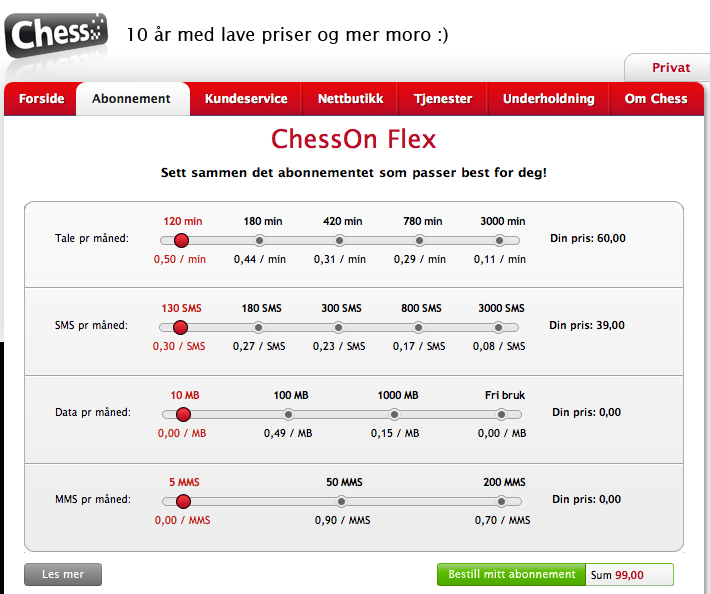Spotify managed to tempt me to click on an advert for changing my mobile phone subscription which took me to a nicely simple way to tailor a subscription (link). It uses sliders to allow me to choose precisely the combination I want for phone minutes, SMS, MMS and Internet use.
I have always liked sliders as an input medium because they combine physical movement with real time feedback of results, in this case, cost. This creates a strong interaction loop with emotional benefits. Ben Shneiderman (link), one of the founders of the Human Computer Interaction discipline has pointed out their benefits for about 20 years, but they don’t seem to be taken up often enough.Using these sliders puts me in control, and allows me to explore different alternatives in real time. Not only this, it expresses a direct desire from the company to let me do this, without trying to hide costs or confuse me. I choose, I feel in control, I am responsible and I feel that I have tailored something to my needs. In short, I feel that Chess are serving me and are willing to listen to what I want, rather than suspecting that someone is tricking me into something they want me to have.
Again an example of how interaction behaviours in services influence our experience of the service, and our opinions about the service provider. Simplicity in practice, and brand building at the same time.
